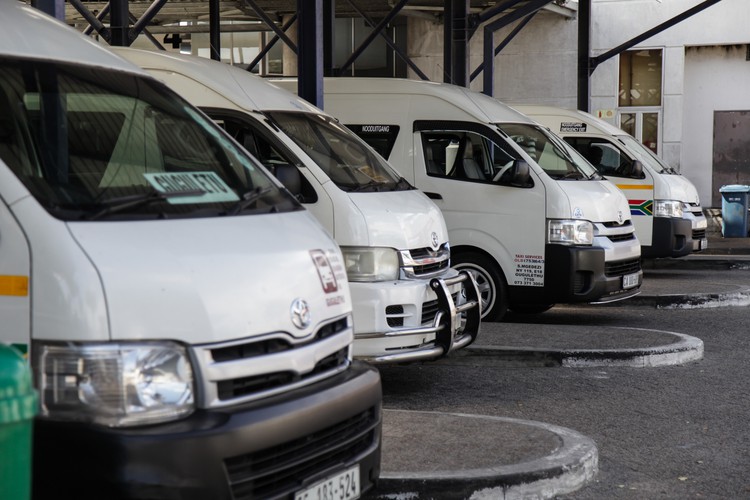Without the right to public transport, most people can’t access their other rights
Regulating and subsidising minibus taxis would allow citizens to access their rights
The taxi industry should be subsidised and more closely regulated, says the writer. Archive photo: Ashraf Hendricks
Without public transport, access to many of the rights enshrined in our Constitution is impossible. Yet South Africa’s public transport system does not meet the needs of most urban and rural South Africans.
Since 2005, October has been transport month in South Africa. This year the theme is: “Re-imagining Tomorrow’s Taxi Industry”, dedicated to improving the state of the minibus taxi industry.
Public transport is central to accessing socio-economic rights and is also an integral element of exercising various civil and political rights. Less well-off South Africans (the majority of black people) are reliant on public transport. Yet the Passenger Rail Agency of South Africa (PRASA) continues to face serious systemic and structural challenges.
Government needs to dedicate efforts to improving the public transport system, including ensuring that people in rural areas can access public transport. Most rural communities in South Africa make use of bakkies to access urban areas. The lack of a proper public transport system in rural areas restricts their mobility and decreases their opportunity to participate in activities necessary for socio-economic development.
Public transport is a vital component of the practice and enjoyment of several other rights in the Bill of Rights, including the right to education and to health.
The Bill of Rights stipulates that ‘everyone has a right to freedom of movement’. Freedom of movement encompasses three distinct individual rights: the right to leave your present location and go elsewhere; the right to travel without deterrence; and the right to settle in a place of your choice and remain there.
Despite government efforts to transform public transport through the Bus Rapid Transport system, attempts to integrate urban planning and transportation have been inadequate. Transport and urban planning approaches simply deal with existing demands rather than addressing increased accessibility and convenience for people who make use of minibus taxis. Therefore, the current transport and urban planning system does not favour the working poor who make use of minibus taxis. The minibus taxi industry accounts for 66% of work trips within the public transport sector, yet it is not subsidised.
Several urgent steps could be taken to improve the rights of those who use taxis:
- Reform statistics on the number of legal and illegal minibus taxis - government should conduct research in order to understand the exact number of taxi operators in the country, so that they know who they are dealing with;
- Ensure that all taxis have operating licences;
- Take all illegal taxi operators off the road; regulate the minibus taxi industry, from the management and administration of the taxi association down to the ranks, the queue marshals, and the drivers;
- Improve taxi ranks;
- Register all taxi operators with the Department of Labour and ensure they comply with the Sector Determination for the taxi sector; and
- Integrate the minibus taxi industry into all public transport plans.
Ideally, operational subsidies should be allocated to a single entity to promote integrated public transport planning. The exclusion of the industry from the Integrated Transport Plans of the municipalities is a failure of strategic thinking.
Fobosi is Senior Researcher in the Nelson R Mandela School of Law, University of Fort Hare.
Views expressed are not necessarily those of GroundUp.
Support independent journalism
Donate using Payfast

Don't miss out on the latest news
We respect your privacy, and promise we won't spam you.
© 2020 GroundUp. This article is licensed under a Creative Commons Attribution-NoDerivatives 4.0 International License.
You may republish this article, so long as you credit the authors and GroundUp, and do not change the text. Please include a link back to the original article.

